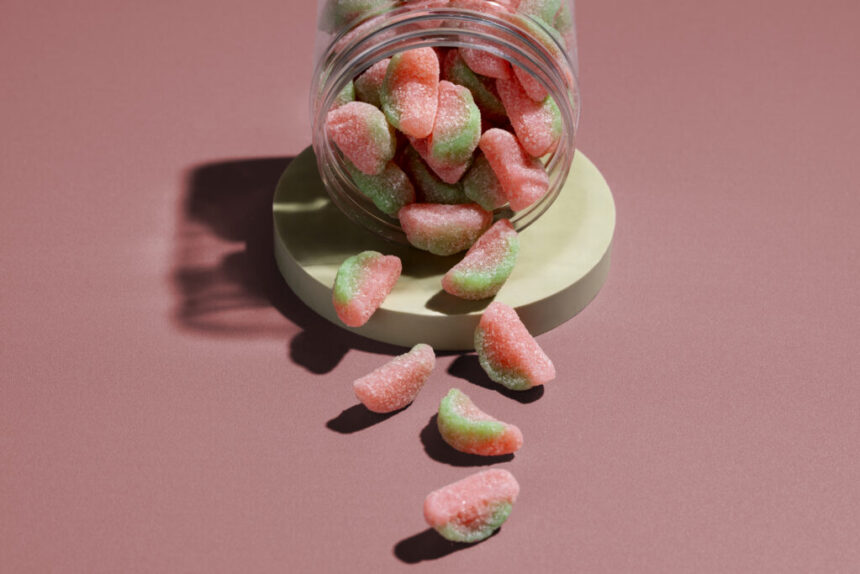The South African Health Products Regulatory Authority (SAHPRA) is sounding the alarm on a concerning increase in fraudulent service providers posing as SAHPRA-accredited. This trend has raised serious concerns as these individuals and businesses are using falsified licenses to deceive the public and conduct unregulated operations, putting lives at risk. The surge in cannabis-infused products in South Africa, ranging from beverages and snacks to baked goods, has exacerbated this issue due to the lack of proper regulation, safety testing, and transparent labeling.
Dr Boitumelo Semete-Makokotlela, CEO of SAHPRA, issued a statement expressing concern over the rapid proliferation of cannabis dispensaries in shopping malls displaying copies of alleged SAHPRA licenses. She clarified that these licenses were originally issued for the cultivation and export of cannabis flower, not for the operation of retail cannabis dispensaries. Such deceptive and illegal conduct is not only unethical but also poses a significant threat to public health and safety.
A recent incident involving a 47-year-old woman from Braynston serves as a stark reminder of the dangers associated with consuming cannabis-infused products. Nozipho found herself hospitalized after consuming a cannabis-infused drink purchased from a pharmacy. The drink, which was indistinguishable from other fruit juices and lacked proper labeling, caused her to experience dizziness, nausea, headache, and loss of consciousness. It was only after being rushed to the hospital that she discovered the true nature of the drink.
Associate Professor Neelaveni Padayachee from Wits University’s Department of Pharmacy and Pharmacology highlighted the potential symptoms of consuming cannabis-infused products, including hallucinations, euphoria, paranoia, confusion, increased heart rate, and dry mouth. These products can also lead to nausea, vomiting, heightened sensory perception, and impaired motor function. Individuals with underlying mental health conditions are particularly at risk, as even a single exposure can exacerbate their condition.
To safeguard the public from such deceptive practices, Semete-Makokotlela urged consumers to verify licenses through official channels and exercise caution when purchasing cannabis-related products, especially from unfamiliar or unverified vendors. The Department of Health issued a government gazette in March aimed at regulating the sale, import, and manufacture of foodstuffs containing any part of the Cannabis sativa L. plant or its derivatives. However, industry leaders have criticized certain aspects of the gazette, particularly the prohibition of cannabis derivatives like hemp.
In South Africa, only the medical use of cannabis is regulated under the Medicines and Related Substances Act of 1965. Cannabis and its psychoactive component, tetrahydrocannabinol (THC), are classified as Schedule 7 substances, requiring a special license for access. SAHPRA does not regulate cannabis-infused products intended for recreational use, as the recreational use of cannabis was decriminalized in 2018 following a Constitutional Court ruling. President Cyril Ramaphosa signed the Cannabis for Private Purposes Act into law in 2024, formalizing the right to possess, use, and cultivate cannabis for personal use while prohibiting commercialization and public sale.
It is crucial for consumers to remain vigilant and informed when it comes to purchasing cannabis-related products to ensure their safety and well-being. SAHPRA continues to work diligently to combat fraudulent practices and protect the public from the dangers posed by unregulated and deceptive service providers in the cannabis industry. A woman, who we will refer to as Jane for privacy reasons, shared her experience with us about her struggle with mental health. Jane’s journey is a reminder that mental health is just as important as physical health, and it’s important to seek help when needed.
Jane’s story began when she noticed changes in her mood and behavior. She was feeling overwhelmed, anxious, and constantly worried about the future. These feelings started affecting her daily life, making it difficult for her to focus at work and enjoy time with her loved ones.
After months of internal struggle, Jane finally decided to seek help. She reached out to a therapist who helped her navigate through her emotions and provided her with coping strategies. Jane also started practicing mindfulness and meditation, which helped her to stay grounded and present in the moment.
Through therapy and self-care practices, Jane began to see improvements in her mental health. She learned to recognize her triggers and manage her anxiety effectively. Jane’s journey towards healing was not easy, but she is grateful for the support she received along the way.
Jane’s story is a powerful reminder that it’s okay to not be okay, and seeking help is a sign of strength, not weakness. Mental health is a journey, and everyone’s path to healing is unique. If you or someone you know is struggling with mental health issues, don’t hesitate to reach out for support.
Remember, you are not alone, and there is help available. Take the first step towards healing, just like Jane did. Your mental health matters, and you deserve to live a happy and fulfilling life.








